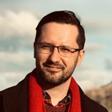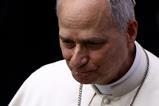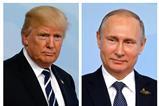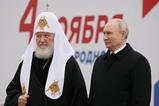In his first foreign trip, Pope Leo is travelling to Turkey to celebrate the 1700th anniversary of the Nicaean Council with Orthodox Church leaders. It’s supposed to be a powerful demonstration of Christian unity, but that message could be in jeopardy on the Orthodox side, as Andreja Bogdanovski reports
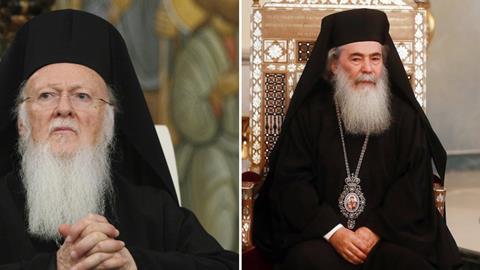
The Vatican has dispatched a 38-strong delegation, including Cardinal Baldassare Reina, the vicar general of the Diocese of Rome, to Turkey to oversee preparations ahead of Pope Leo’s visit for the commemoration of the 1700th anniversary of the First Ecumenical Council in Nicaea later this month. This will be his first international trip since being elected Pope.
Orthodox and Catholic Christians will witness a remarkable display of unity between the two churches, not seen since the 1960s when the anathema between these branches of Christianity was lifted, leading to gradual but ongoing reconciliation.
But at what was supposed to be the headline event among this year’s many Nicaea commemorations - two Christian leaders celebrating the legacy at the very place where the first ecumenical council took place, and where the discussions gave rise to the Nicene Creed – now looks like a watered-down version with last-minute wrangling amongst the Orthodox.
The first ecumenical council matters to the entire Christian world as it demonstrates that unity is achievable. Held in 325 AD in today’s Iznik (north-western Turkey), the council’s decisions have been recognised as valid by both the Orthodox and Catholic churches.
It was much later, at the The Great Schism of 1054 when Rome and Constantinople were separated into two churches.
Iznik was also the site where debates about determining the date of Easter occurred. And 1700 years later, Catholics and Orthodox still remain divided over the calendar.
“One Lord, one faith, one baptism”
The first overseas trip of the new Pope, under the motto “One Lord, one faith, one baptism,” will be seen by many as a gesture of reconciliation and a significant act of goodwill towards the spiritual leader of many Orthodox Christians - Bartholomew I, whose seat is in Istanbul.
But this is no ordinary meeting between two church leaders. The ecumenical patriarch’s role has long been constrained by history and politics. Although he holds primacy of honour, there are over a dozen heads of Orthodox churches that are independent and in communion with one another.
The Turkish authorities also contest Bartholomew’s “ecumenical” standing. Contrary to his ecclesiastical and historical prerogatives, Ankara considers him only as a leader of the Greek Orthodox community in Turkey and nothing more.
Given this context, he must make several geo-ecclesiastical manoeuvres in the political as well as intra-Orthodox realms for the Nicaea celebration to go well. However, as the dates draw closer, Bartholomew is facing growing pressure from multiple directions.
Initially reported by Orthodox Times at the end of October, the ecumenical patriarch responded to the growing “disorderly voices” of some local churches, which claim that the ecumenical patriarchate has lately forfeited its traditional responsibilities.
Bartholomew refuted such claims as “untrue”, saying that the churches making these accusations exist today because of the ecumenical patriarchate’s historical role and pastoral care. He added that by making these assertions against him, the churches he chose not to name “undermine themselves and contribute negatively to the present life of the Church.”
The fractured Pentarchy
Bartholomew, who is 85, is under pressure to put on display a unified front by inviting the other Orthodox primates of the ancient patriarchates, hoping to evoke the historical “pentarchy” format of Rome, Constantinople, Alexandria, Antioch, and Jerusalem.
But cracks have already been showing. In recent weeks, tension has emerged between Bartholomew and the Greek Orthodox Patriarch of Jerusalem, Theophilos III, who has notably remained silent on the invitation to join the celebrations.
In an effort to put pressure on him, Bartholomew has publicly urged his participation, stressing that the Nicaea commemorations “cannot be imagined without the presence of the successor of Saint James, the brother of the Lord”.
The growing rift between the two was already visible in September, when Theophilos visited President Erdogan in Turkey but did not pay the customary visit to the ecumenical patriarchate in Istanbul, which was read as a pointed snub.
What was supposed to be the headline of this year’s Nicaea commemorations now looks like a watered-down version with last-minute wrangling amongst the Orthodox
Orthodoxy is far from a coherent unit of believers, making it more challenging to show a unified face. There is already a massive split between the ecumenical patriarch and the biggest of all Orthodox churches – the Russian Orthodox Church, over Ukraine.
But the focus on Bartholomew to gather the Pentarchy and present “a tangible manifestation of the unity of Eastern and Western Christianity—of the four Patriarchs of the East and the Patriarch of the West” may be creating another layer of friction among the Slavic heads of churches who have not received similar treatment.
Currently, the Polish Orthodox Church seems to be the loudest and most confrontational. While the Pope’s visit is the most pressing issue, Metropolitan Sawa of Warsaw and All Poland has once again called for a pan-Orthodox Council, a gathering of all Orthodox primates to discuss the split over the Ukrainian church’s independence. This issue has been driving a wedge between Constantinople and Moscow.
The independent Orthodox Church of Ukraine (OCU) was recognised as autocephalous by the ecumenical patriarch in 2019, something which Moscow vehemently opposed.
The careful continuation of Francis’ legacy
Pope Leo’s visit to Turkey is not entirely about rapprochement with the Orthodox churches but a broader Papal engagement. Upon his arrival in the country, the Pope’s first stop is a meeting with the Turkish President Erdogan. From Turkey, he will continue on to Lebanon.
Scheduled for May, the Nicaea celebrations were pushed back following Pope Francis’s death, which took place a day after both Catholics and Orthodox happened to share the same Easter date. The event will now take place at the end of November under new Catholic leadership, coinciding with the ecumenical patriarchate’s feast of St Andrew the Apostle, patron saint of the ecumenical patriarchate.
The relationship between the previous Pope and the ecumenical patriarch had been growing very close, and Francis called Bartholomew “brother”. Shortly before Pope Francis’ death, Bartholomew famously stated that the 1054 split is “not insurmountable”.
Leo will be aiming to continue Francis’s legacy and sustain ecumenism with the Orthodox faithful.
